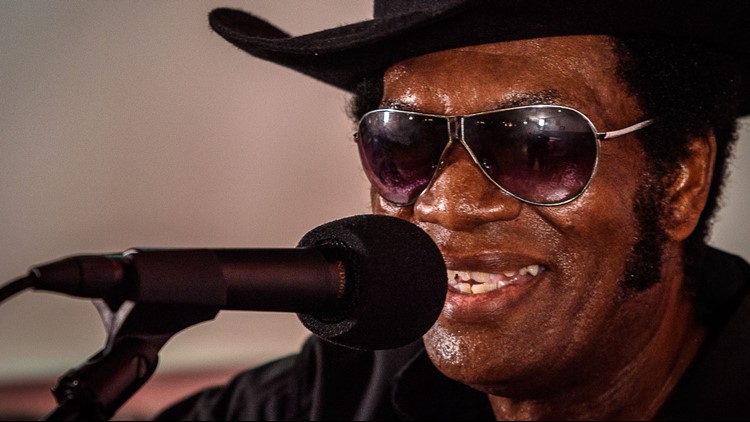NASSAWADOX, Va. (Delmarva Now) — A Northampton concert venue and lounge marked its 50th year, plus one, with a celebration including live music, lots of dancing and heaping plates of home-cooked soul food to fuel it all.
Giddens' Do Drop Inn in Weirwood opened its doors in summer 1967. Musicians who have played there through the years include Arthur "Big Boy" Crudup and local favorite Black Elvis, among others.
Built by Lloyd Henry Giddens with building materials from the recently torn-down home of a white man, the former juke joint is now operated by Giddens’ daughter, Jane Cabarrus.
Crudup -- a field laborer and blues artist whose songs were covered by Elvis Presley, Elton John and Rod Stewart -- played at the Do Drop every weekend at one time, in addition to acts like the Malibus and Burley Strand and the All-Stars.
On Saturday, the musical lineup included Billy Mercury, Black Elvis and Snowflake, McKay Shockley, the Snow Hill All-Stars and the Chris English Band.
Cabarrus, called "Mama Jane" by most, hustled around the crowded room at the event Saturday night, greeting acquaintances with a hug, as is her wont, and scooping up empty bottle and cans from tables. Cabarrus even came to the stage and sang along with Shockley on the classic "Stand by Me," a song originally performed and recorded in 1960 by American singer-songwriter Ben E. King.
Hampton Roads public television station WHRO was on hand to film Saturday's concert for a documentary about the Do Drop, as locals call it.
It is one of the oldest continually owned and operated African-American businesses on Virginia's Eastern Shore and was once open seven days a week — offering soul food, a jukebox, penny candy and a firm handshake for members of the Shore's African-American community who were excluded from many venues at the time.
The Do Drop Inn standing today was Giddens’ second attempt at opening the business. He tried to reconstruct a venue prior to that but was unable to borrow the $2,000 needed to complete the work, and the building fell into disrepair and decay, according to Cabarrus.
“Our community was really growing,” Cabarrus said in a 2017 interview. “During that time, in the 60s, the blacks had nowhere to go for entertainment and fun.
"The 60s wasn’t a good time for the Eastern Shore, but we had good Caucasian people on our side that really looked out for Daddy," Cabarrus said.
Now, a half-century later, the place that started as a safe place to gather for the black community continues to open its doors as a welcoming place for all members of the community to gather, listen and dance to good tunes, eat good food and catch up with their friends and neighbors.



